Search
Did you mean: Bes?
Search Results
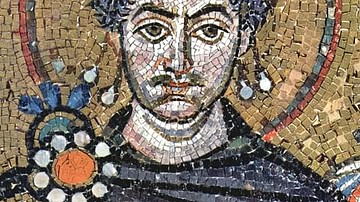
Article
Justinian's Plague (541-542 CE)
During the reign of the emperor Justinian I (527-565 CE), one of the worst outbreaks of the plague took place, claiming the lives of millions of people. The plague arrived in Constantinople in 542 CE, almost a year after the disease first...
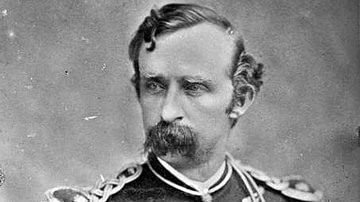
Article
Custer's Account of the Battle of Washita River
My Life on the Plains or Personal Experiences with Indians (1874) is a full-length narrative by George Armstrong Custer (l. 1839-1876) of his time out west from 1867-1874. The work includes his observations on Native Americans and accounts...
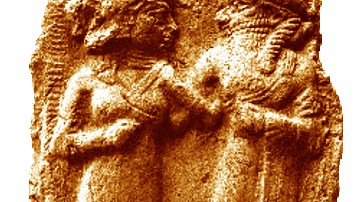
Article
The World's Oldest Love Poem
The world's oldest love poem is The Love Song for Shu-Sin (c. 2000 BCE) composed in ancient Mesopotamia for use in part of the sacred rites of fertility. Prior to its discovery in the 19th century, and its translation in the 20th, the biblical...
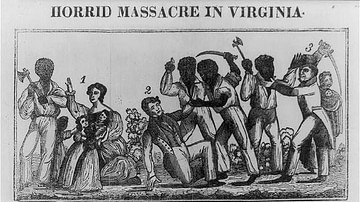
Article
The Aftermath of Nat Turner's Insurrection by John W. Cromwell
John Wesley Cromwell (l. 1846-1927) was an African American civil rights activist, educator, historian, journalist, and lawyer who wrote extensively on slave revolts, especially Nat Turner's Rebellion of 1831. Drawing on primary sources...
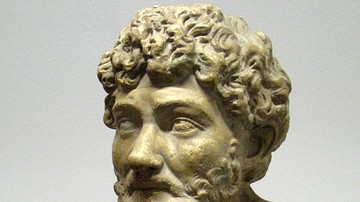
Article
Aesop's Fables
Written by a former Greek slave, in the late to mid-6th century BCE, Aesop's Fables are the world's best known collection of morality tales. The fables, numbering 725, were originally told from person-to-person as much for entertainment purposes...
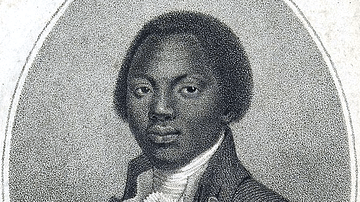
Article
Olaudah Equiano's Account of the Middle Passage
Olaudah Equiano (l. c. 1745-1797, also known as Gustavus Vassa) was an African of the Igbo village of Essaka, of the Kingdom of Benin (modern Nigeria), who was enslaved around the age of ten, bought his freedom around the age of 20, and became...
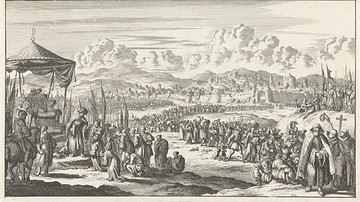
Article
Saladin's Conquest of Jerusalem (1187 CE)
Jerusalem, a holy city for the adherents of all three great monotheistic religions (Judaism, Christianity, and Islam) was conquered by the armies of the First Crusade in 1099 CE. The Muslims failed to halt their advance, as they were themselves...
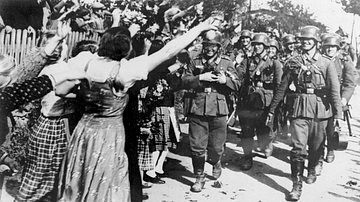
Article
Hitler's Occupation of Czechoslovakia
Throughout 1938, Adolf Hitler (1889-1945), the leader of Nazi Germany, threatened to occupy the Sudetenland region of Czechoslovakia. The excuse presented was that Sudeten Germans were being repressed but Hitler was intent on creating a 'Greater...
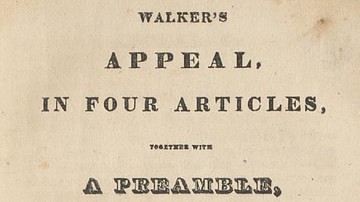
Article
David Walker's Appeal to the Coloured Citizens of the World
David Walker (l. c. 1796-1830) was an African American abolitionist writer best known for his 1829 work An Appeal to the Coloured Citizens of the World (also known The Appeal or Walker's Appeal) advocating for a united front in the abolition...
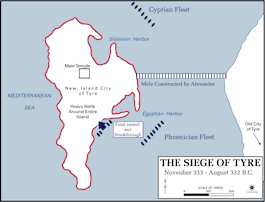
Article
Alexander's Siege of Tyre, 332 BCE
After defeating Darius III at the battle of Issus in November 333 BCE, Alexander marched his army (about 35,000-40,000 strong) into Phoenicia, where he received the capitulation of Byblus and Sidon. Tyrian envoys met with Alexander whilst...